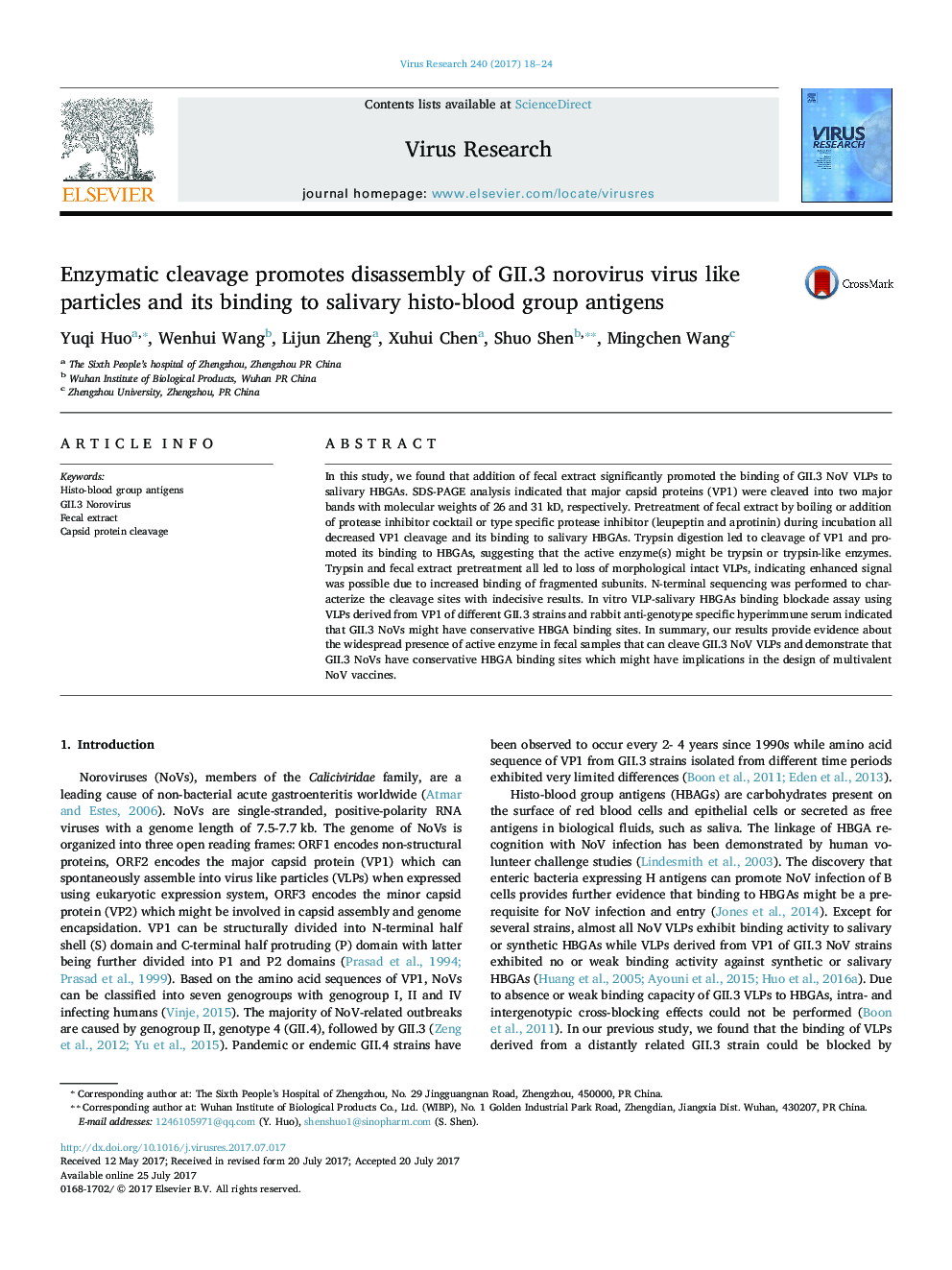| Article ID | Journal | Published Year | Pages | File Type |
|---|---|---|---|---|
| 5675286 | Virus Research | 2017 | 7 Pages |
â¢Fecal extracts promote the binding of GII.3 VLPs to salivary histo-blood group antigens (HBGAs).â¢Enzyme cleavage is required for the observed promotion effects.â¢The binding of cleaved GII.3 VLPs derived from VP1 of different strains against salivary HBGAs can be blocked by rabbit anti-JZ402 hyperimmune serum.
In this study, we found that addition of fecal extract significantly promoted the binding of GII.3 NoV VLPs to salivary HBGAs. SDS-PAGE analysis indicated that major capsid proteins (VP1) were cleaved into two major bands with molecular weights of 26 and 31Â kD, respectively. Pretreatment of fecal extract by boiling or addition of protease inhibitor cocktail or type specific protease inhibitor (leupeptin and aprotinin) during incubation all decreased VP1 cleavage and its binding to salivary HBGAs. Trypsin digestion led to cleavage of VP1 and promoted its binding to HBGAs, suggesting that the active enzyme(s) might be trypsin or trypsin-like enzymes. Trypsin and fecal extract pretreatment all led to loss of morphological intact VLPs, indicating enhanced signal was possible due to increased binding of fragmented subunits. N-terminal sequencing was performed to characterize the cleavage sites with indecisive results. In vitro VLP-salivary HBGAs binding blockade assay using VLPs derived from VP1 of different GII.3 strains and rabbit anti-genotype specific hyperimmune serum indicated that GII.3 NoVs might have conservative HBGA binding sites. In summary, our results provide evidence about the widespread presence of active enzyme in fecal samples that can cleave GII.3 NoV VLPs and demonstrate that GII.3 NoVs have conservative HBGA binding sites which might have implications in the design of multivalent NoV vaccines.
